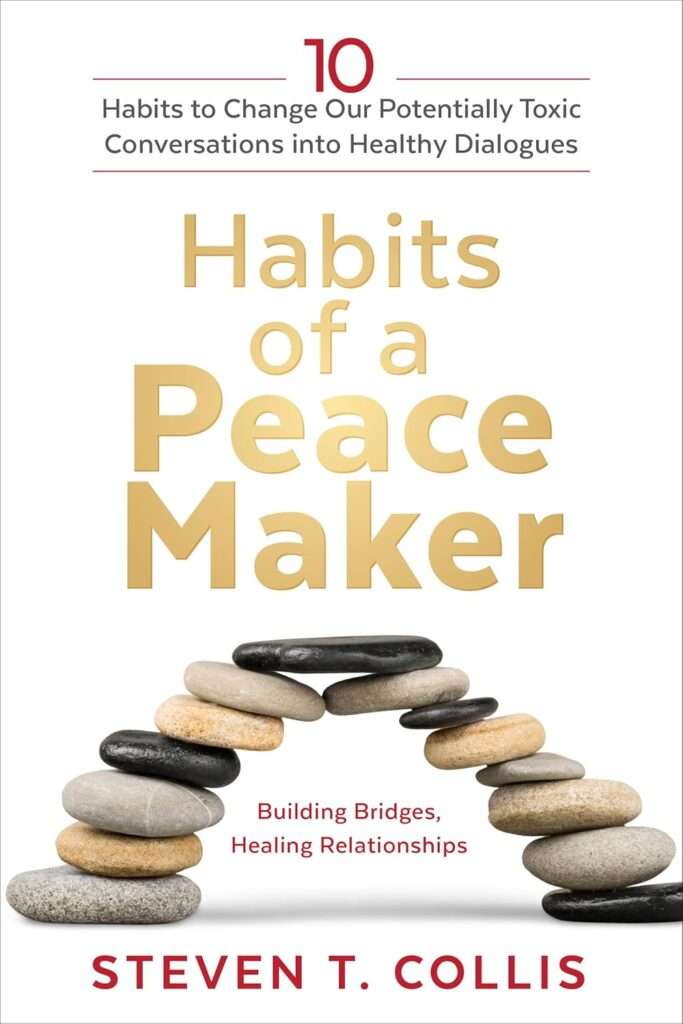On the Missions of Academic Institutions

For my last post in this series related to my new book Habits of a Peacemaker: 10 Habits to Change Our Potentially Toxic Conversations into Healthy Dialogues, I turn to the role of institutions of higher education. I spend much of Chapter 2 in Habits talking both about how humanity generates knowledge and how we should each responsibly seek after it. I offer practical tips for doing the latter so that we can have more productive discourse. In theory, at least, modern universities should be places that can help with that enterprise. Sadly, too often, they are not playing that role. Many Americans do not trust these institutions or the people in them. And at least part of the problem, in my view, is a lack of understanding by faculty and administrators of the heavy cost that comes from moving universities away from seeking for and disseminating truth.
In a recent event at the Bech-Loughlin First Amendment Center, Jonathan Rauch, Jonathan Haidt, and I engaged in a discussion with our audience about whether the missions of universities should be to pursue truth or to seek social justice. We also questioned whether that framing created a false dichotomy. As you might expect, the audience had mixed reactions. Different groups adopted each of the available views. Haidt, Rauch, and I then discussed the topic more in depth.
I return to it now to make a simple point. Universities must recognize the price that comes with deviating from a truth-seeking mission towards a social justice mission. That price is respect and credibility. And they will pay it whether they like it or not.
Of course, we must be clear on what we’re talking about here. Private universities, especially, have every right to adopt whatever mission they see fit. And I take no position here on whether, in some instances, it might make sense for a university to choose to pursue some forms of justice as they define it. That said, those in our audience who felt that truth and social justice are not necessarily at odds with one another probably have the better argument. Truth often will lead to justice. It will also often lead to better dialogue and improvements in standards of living. This is especially true over the long term. So allowing institutions to engage in work that results in justice is not necessarily credibility destroying. Even pursuing social justice goals, by itself, is not inherently problematic.
The problem arises when institutions—universities, departments within them, or academic organizations—adopt some ideology or solution that most of its faculty or administrators believe is just, then shut down all debate, discussion, or scholarship that contradicts what they have adopted. This can happen in formal ways, such as when a college declares that it will pursue only a certain type of approach in its research. Or it can happen informally, often through faculty refusals to consider or be generous to views contrary to their preferred orthodoxy.
When a researcher makes a discovery that seems to undermine an institution’s claimed social justice mission, and those in the field discourage its publication, others who learn of such acts cannot help but be skeptical of any research that institution later produces. When faculty always produce “research” that comes down on just one side of whatever culture war issue is most important to them, they cannot expect others to respect them as much as scholars. They can find esteem as advocates. They can earn recognition as activists. But people will struggle to see them as serious seekers of truth. This is both expected and unavoidable. Universities cannot enjoy the respect given to institutions dedicated solely to exploring and propagating truth while being something other than that. Too often, however, too many people at them are hoping to achieve just that.
To help check our biases, let’s explore this from another angle. If a private religious university adopts a policy that it will not allow any research or statements by its faculty that undermine the reputation or mission of its sponsoring religious organization, the outcome is as predictable as day following night. Many academics at secular universities will be skeptical of what the religious university generates, especially on topics that seem to support the sponsoring religion’s worldviews. Again, the religious university cannot avoid that result. It has a First Amendment right to focus on its mission and to adopt this very policy, but the price it pays for doing so is at least some credibility in the broader society. It may well want to pay that price, but it cannot avoid it.
The same is true for secular institutions who choose to pursue the social justice aims of the day at the expense of truth.
For public universities, where the First Amendment governs and academic freedom is arguably a right, an explicit adoption of some aim other than truth seeking is less common. But the problem still exists. In those settings, administrators and faculty are less explicit about silencing dissenting views. Instead, the problem occurs informally, in harder to detect ways. Faculty, for instance, enjoy a broad First Amendment right to choose their own members. But if, in doing so, they refuse to select faculty who dissent from the accepted orthodoxy, they create an environment so homogenous that, eventually, people outside the institutions start to notice. Credibility suffers. Other ways the problem arises is when dissenting faculty remain silent on key issues or forego lines of research because they know their colleagues might find them distasteful. All of that may be hard to detect, but it is still discoverable. The public notices, and respect for the institution as a place of knowledge creation and truth seeking will suffer.
The bottom line is this. Those who run our universities—faculty and administrators alike—cannot have it both ways. Americans’ trust in higher education remains low. I am sure that, as with anything, there are multiple causes. But academics must come to understand that while truth and social justice are often not mutually exclusive, respect as a truth seeker and a relentless pursuit for social justice at the cost of truth are. If academics would like society generally to trust and respect them as creators of knowledge and seekers of truth, they would do well to ensure there is diversity in their ranks. If institutions would like more credibility in what they produce, they should avoid taking positions on the issues of the day or doing anything that would suppress certain types of research.
Until that understanding finds a home, institutions of higher education will not live up to their potential to help our society develop the skills of real learning and productive discourse we so desperately need.
The post On the Missions of Academic Institutions appeared first on Reason.com.
Source: https://reason.com/volokh/2024/09/13/on-the-missions-of-academic-institutions/
Anyone can join.
Anyone can contribute.
Anyone can become informed about their world.
"United We Stand" Click Here To Create Your Personal Citizen Journalist Account Today, Be Sure To Invite Your Friends.
Humic & Fulvic Liquid Trace Mineral Complex
HerbAnomic’s Humic and Fulvic Liquid Trace Mineral Complex is a revolutionary new Humic and Fulvic Acid Complex designed to support your body at the cellular level. Our product has been thoroughly tested by an ISO/IEC Certified Lab for toxins and Heavy metals as well as for trace mineral content. We KNOW we have NO lead, arsenic, mercury, aluminum etc. in our Formula.
This Humic & Fulvic Liquid Trace Mineral complex has high trace levels of naturally occurring Humic and Fulvic Acids as well as high trace levels of Zinc, Iron, Magnesium, Molybdenum, Potassium and more. There is a wide range of up to 70 trace minerals which occur naturally in our Complex at varying levels. We Choose to list the 8 substances which occur in higher trace levels on our supplement panel. We don’t claim a high number of minerals as other Humic and Fulvic Supplements do and leave you to guess which elements you’ll be getting.
Order Your Humic Fulvic for Your Family by Clicking on this Link, or the Banner Below.
Our Formula is an exceptional value compared to other Humic Fulvic Minerals because...
It’s OXYGENATED
It Always Tests at 9.5+ pH
Preservative and Chemical Free
Allergen Free
Comes From a Pure, Unpolluted, Organic Source
Is an Excellent Source for Trace Minerals
Is From Whole, Prehisoric Plant Based Origin Material With Ionic Minerals and Constituents
Highly Conductive/Full of Extra Electrons
Is a Full Spectrum Complex
Our Humic and Fulvic Liquid Trace Mineral Complex has Minerals, Amino Acids, Poly Electrolytes, Phytochemicals, Polyphenols, Bioflavonoids and Trace Vitamins included with the Humic and Fulvic Acid. Our Source material is high in these constituents, where other manufacturers use inferior materials.
Try Our Humic and Fulvic Liquid Trace Mineral Complex today. Be 100% Satisfied or Receive a Full Money Back Guarantee. Order Yours Today by Following This Link.






